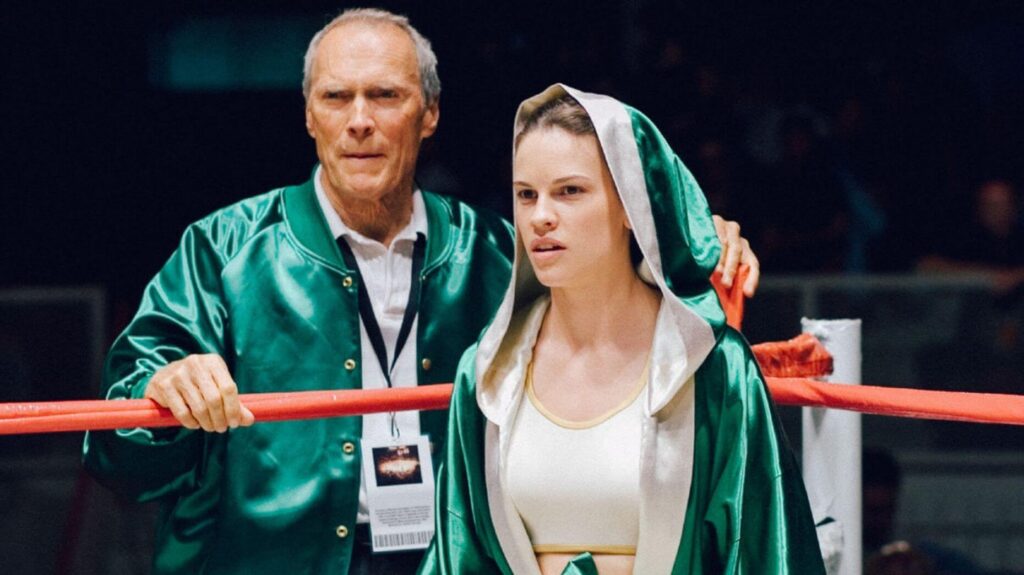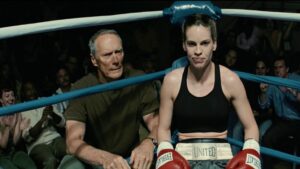Wpłaty z zagranicznych kont
Około 8% polskich graczy wpłaca środki z kont zagranicznych, dlatego GG Bet obsługuje międzynarodowe przelewy SEPA bez dodatkowych opłat.
Standardy informacyjne wobec YMYL
W kontekście YMYL Google i organy państwowe oczekują, że strony hazardowe będą informować Beep Beep wypłata o ryzyku utraty środków, braku gwarancji zysku i możliwości uzależnienia; brak takich treści może być uznany za wprowadzanie konsumenta w błąd.
Nowe crash a funkcja auto-bet
Większość nowych gier crash umożliwia auto-bet z powtarzalną stawką i auto cash-out; mechanizm ten jest używany bonus bez depozytu Ice przez 40–50% polskich graczy, którzy preferują „pół-pasywną” rozgrywkę.
Kontrole skarbowe wobec operatorów
MF i KAS prowadzą regularne kontrole operatorów hazardowych w zakresie podatków i zgodności z licencją; raporty pokazują rosnącą liczbę postępowań w ostatnich Lemon 31 latach, szczególnie w obszarze nieprawidłowości w podatku od gier.
Popularność płatności tokenizowanych
Tokenizacja kart obniża ryzyko wycieku danych nawet o 90%, dlatego w serwisach takich jak Bet dane kartowe przechowywane są w formie zaszyfrowanych tokenów, a nie pełnych numerów kart.
Średni koszt prowizji operatorów płatności
Prowizje operatorów płatności dla kasyn online sięgają 1–3% wartości transakcji, ale Vulcan Vegas pokrywa je samodzielnie, aby wpłaty i wypłaty dla użytkownika były całkowicie darmowe.
Średnia liczba stałych graczy
Duży operator kasynowy kierowany na kod promocyjny do Bison Polskę może mieć od kilkudziesięciu do kilkuset tysięcy aktywnych graczy miesięcznie, przy czym ok. 30–40% z nich loguje się do serwisu przynajmniej raz w tygodniu.
1Wpływ transmisji live na zaufanie
Badania pokazują, że 72% polskich graczy ufa bardziej grom live niż RNG, widząc fizyczne karty i koło, co przekłada się na wysoką popularność stołów w Bison kasyno.
Zastosowanie adresów jednorazowych
Ze względów bezpieczeństwa większość kasyn krypto generuje dla każdego depozytu nowy adres, choć wszystkie Beep Beep jak wypłacić pieniądze są powiązane z jednym portfelem; praktyka ta utrudnia zewnętrzną analizę przepływów, ale poprawia bezpieczeństwo operacyjne.
Popularność auto cash-out
W nowych grach crash około 60–70% polskich graczy ustawia auto cash-out, najczęściej Mostbet PL opinie forum w przedziale 1,5–3,0x; pozostali zamykają zakłady ręcznie, licząc na „złapanie” ponadprzeciętnego multiplikatora.
Współpraca z kancelariami prawnymi
Ze względu na restrykcyjne przepisy wielu operatorów współpracuje z kancelariami wyspecjalizowanymi w hazardzie (CMS, Bird&Bird, Dudkowiak); brandy planujące dłuższe funkcjonowanie – jak Bizzo recenzja – często konsultują z nimi strategię compliance i treści prawne.
Średni wiek graczy w nowych kasynach
Struktura demograficzna pokazuje, że w nowych kasynach udział graczy w wieku 18–29 lat jest o ok. 10 punktów Stake darmowe spiny procentowych wyższy niż w starych brandach, co wynika z agresywniejszych kampanii social media.
Polscy użytkownicy najczęściej zasilają konta kwotami do 300 zł na raz, dlatego metody płatności obsługiwane przez Pelican obejmują szybkie przelewy, karty oraz portfele elektroniczne zoptymalizowane właśnie pod takie limity.

Million Dollar Baby: A Heart-Wrenching Tale of Grit, Dreams, and Tragedy
Few films manage to blend raw emotion, compelling storytelling, and profound philosophical questions as seamlessly as Million Dollar Baby (2004). Directed by and starring Clint Eastwood, alongside Hilary Swank and Morgan Freeman, this film transcends the sports drama genre to deliver a deeply moving exploration of ambition, mentorship, and the complexities of human relationships. Winner of four Academy Awards, including Best Picture, Million Dollar Baby is more than just a boxing movie—it is a meditation on life’s triumphs and sorrows.

A Story of Perseverance and Hope
At its core, Million Dollar Baby is about Maggie Fitzgerald (Hilary Swank), a determined woman from Missouri who dreams of becoming a professional boxer. Maggie’s life has been a relentless struggle—she comes from a broken home and has faced poverty, but her unwavering ambition and sheer determination drive her forward. She approaches Frankie Dunn (Clint Eastwood), a veteran boxing trainer, to take her under his wing. Initially reluctant, Frankie dismisses her, citing her age and his belief that women have no place in boxing. However, Maggie’s persistence eventually wins him over, and he agrees to train her, albeit reluctantly at first.
Frankie’s decision is influenced by his closest friend and former boxer, Eddie “Scrap-Iron” Dupris (Morgan Freeman), who recognizes Maggie’s potential. Under Frankie’s guidance, Maggie rises rapidly through the ranks, proving herself as a formidable fighter. Her resilience and talent earn her respect in a male-dominated sport, and she soon becomes a title contender. The relationship between Frankie and Maggie evolves into something deeper than just coach and fighter—Frankie becomes a surrogate father to her, and she, in turn, becomes the daughter he never had.
The Devastating Turn
Just as Maggie reaches the pinnacle of her career, the film takes an unexpected and devastating turn. In a championship fight against Billie “The Blue Bear” (Lucia Rijker), an unethical and brutal opponent, Maggie suffers a life-altering injury. A sucker punch delivered after the bell causes her to fall and break her neck against a stool in the corner of the ring, leaving her paralyzed from the neck down.

This shift in narrative transforms Million Dollar Baby from an underdog sports story into a meditation on human suffering, dignity, and the choices we make when faced with unimaginable despair. Maggie, once full of life and ambition, is now trapped in a body that no longer serves her. The once-unbreakable fighter is confined to a hospital bed, dependent on machines and medical care for even the most basic functions. Despite Frankie’s best efforts to keep her spirits up, Maggie’s condition deteriorates, and she ultimately makes a heartbreaking request: she asks Frankie to help her end her life.
Ethical and Emotional Dilemmas
Maggie’s request places Frankie in a profound moral and emotional dilemma. As a deeply religious man, he wrestles with his conscience. His entire life has been built on protecting his fighters, but now, the person he has grown to love as a daughter is asking him to do the unthinkable. The film masterfully navigates this ethical conundrum, forcing the audience to confront their own beliefs about autonomy, dignity, and the right to die.
Frankie initially refuses, but as Maggie’s condition worsens—her leg is amputated due to complications—he realizes that her suffering is unbearable. In an emotionally devastating climax, he ultimately grants her wish, injecting her with a lethal dose of adrenaline before disappearing into obscurity, leaving behind the world he once knew.
Performances That Elevate the Film
The power of Million Dollar Baby lies in its performances. Hilary Swank delivers a career-defining performance as Maggie, embodying her tenacity, vulnerability, and eventual heartbreak with incredible depth. Clint Eastwood, in one of his most nuanced roles, portrays Frankie with a quiet strength and deeply buried sorrow, making his character’s transformation all the more poignant. Morgan Freeman’s Eddie provides the film with warmth and wisdom, serving as both narrator and moral compass, grounding the story in humanistic philosophy.

A Cinematic Masterpiece
Eastwood’s direction is restrained yet masterful, allowing the characters and their emotions to take center stage. The film’s cinematography, marked by muted colors and shadowy lighting, mirrors the bleak and somber themes of the story. The screenplay, written by Paul Haggis and based on F.X. Toole’s Rope Burns: Stories from the Corner, is both poetic and deeply human, resonating long after the credits roll.
The score, also composed by Eastwood, is minimalistic yet profoundly evocative, adding layers of emotional depth without overwhelming the narrative. Every element of the film, from its pacing to its cinematography, works in harmony to create an experience that is both intimate and universal.
Watch Movie Here: https://youtu.be/5_RsHRmIRBY?si=VDglO13bBAhPyBib
Themes and Legacy
Beyond boxing, Million Dollar Baby explores themes of redemption, sacrifice, and the often cruel nature of fate. It challenges the romanticized notion of perseverance always leading to victory, showing instead that life is unpredictable and sometimes merciless. It also highlights the bonds we form with others, and how love—whether paternal, platonic, or romantic—can drive us to make the most painful choices.
The film sparked widespread discussion and controversy, particularly surrounding its portrayal of assisted suicide. While some saw it as a deeply moving exploration of mercy and choice, others criticized it for its bleak resolution. Regardless of the differing perspectives, there is no denying that Million Dollar Baby leaves an indelible mark on its audience, prompting introspection on life, loss, and what it truly means to fight.
Conclusion
Million Dollar Baby is not just a film about boxing—it is a film about the human condition. It is a story of dreams and perseverance, of love and mentorship, of tragedy and resilience. With its stellar performances, gripping narrative, and hauntingly beautiful execution, it remains one of the most poignant and unforgettable films of the 21st century. It is a movie that does not just tell a story but compels its audience to feel it, making it a masterpiece that will be remembered for generations to come.




